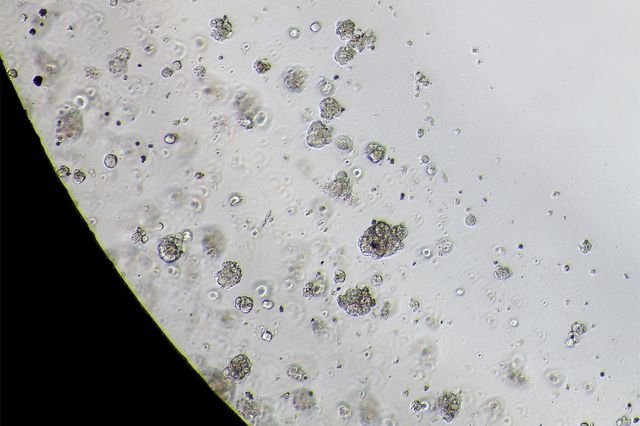UCLA researchers grew ovarian cancer tumor organoids in a dish in the lab, using the empty center of the dish (top right) to quickly screen of hundreds of different treatments. Photo by Alice Soragni/UCLA Jonsson Comprehensive Cancer Center
Feb. 26 (UPI) -- Researchers have developed a new method to speed up the process of finding the right drug to treat rare forms of cancer, a study says.
The new approach uses miniature tumor organoids created from patients' cells, according to a study published Monday in Communications Biology.
This year, the American Cancer Society estimates that more than 1.7 million people in the U.S. will be diagnosed with cancer, making better drug selection important for a lot of people.
"We always focus on how we need new and better drugs to treat cancer," Alice Soragni, a scientist at the UCLA Jonsson Comprehensive Cancer Center and study senior author, said in a news release. "While that's true, we also have many drugs currently available -- for most of them, we just haven't been able to figure out who is going to respond to which ones."
Grown in a lab, organoids are smaller versions of bodily organs or tumors that mimic the full-size structures.
"We obtain cancer cells directly from surgery and that same day we can seed them to generate tumor organoids," Soragni said. "We created a miniaturized system that allows the setup of hundreds of wells for testing with minimal manipulation."
The researchers use robots to screen hundreds of treatment on organoids at the same time. The process can take up to two weeks.
The research studied four people, one of whom had a rare form of ovarian cancer. The organoid grown from her cancer cell showed a positive response from a drug class known as cyclin-kinase inhibitors. They target the cancer by stopping it from growing.
The researchers say without the test, they would have never known whether those drugs worked on that specific cancer.
"This could become a powerful tool to help guide therapies for people who really have no known treatment options left," Soragni said.















